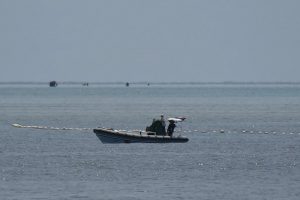To stay ahead in the international race to vaccinate global population, China has now roped in over a dozen countries to conduct the final phase trials of its experimental COVID-19 vaccines.
Countries, including Peru, Argentina, Brazil, Bahrain, the UAE, Egypt, Pakistan, Turkey, Morocco, Saudi Arabia, Bangladesh, Indonesia and Russia, are supporting China in its experiments.
Thousands of people in these nations have been injected the experimental vaccines, Hong Kong-based South China Morning Post reported on Tuesday quoting company, government statements and media reports.
For some of these countries, approving final phases of clinical trials is an easy medium of securing early access to vaccines.
Also read: Pune-based Serum Institute to produce additional 100 million COVID-19 vaccine doses
In recent weeks, officials from Mexico, Bangladesh and Pakistan have been quoted in the media, stating about the trials as a means to gain future access to approved vaccines.
Last week, Chairman Yang Xiaoming of China National Biotec Group, which had obtained approval to start phase 3 trials for its coronavirus vaccine on candidates in the UAE, said that 350,000 people had been injected with the experimental vaccines under the scheme.
Yang Sheng, deputy director of the National Medical Products Administration’s drug registration bureau, said four China-developed COVID-19 vaccines have begun the final stage of human trials overseas after obtaining approval from foreign authorities.
Also read: As world waits for COVID-19 vaccine, study suggests masks could help boost immunity
China has been focusing on developing five types of vaccines, and each method has at least one entering clinical trials. In total, 11 vaccine candidates are in different stages of testing, Sheng was quoted by the state-run China Daily.
Zheng Zhongwei, head of medical science development at the National Health Commission, told media that China’s annual capacity to make COVID-19 vaccines was expected to reach 610 million doses this year and one billion doses by 2021.
Facing worldwide criticism over the mass spread of the coronavirus, the country plans to have a diplomatic strategy by offering its vaccines to smaller countries at affordable costs.







